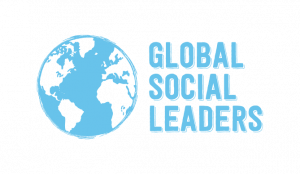We are delighted to share a blog written by student Xingtong Huang from St Margaret’s and Berwick Grammar School, who is part of a team delivering a Global Goals project for the 2019-20 Global Goals Competition.
Their project is among over 957 social action projects currently running as part of the GSL movement and we are excited to be supporting them to design and lead positive social change in their community.
So far, it has been a very rewarding and fulfilling experience and we have learnt many valuable lessons that can’t be taught through books.
Project Overview
Hello, we are “Every Stitch Counts: Save The Reef” and we are based in Melbourne, Australia. Our project aims to raise awareness of the damaging effects of climate change in the Great Barrier Reef, as per Goal 14 of the United Nations Sustainability Development Goals. We will produce a large scale knitted coral reef and art installation will be created by members of the local community, including but not limited to students, teachers, residents of nearby retirement villages and more.
As Australians, the Great Barrier Reef is an iconic and significant ecosystem that has unfortunately been affected by mass bleaching and rising ocean acidity. At least 93% of the reef has been hit by mass bleaching and the rate of calcification for coral has decreased by 40% between 1975 to 2009. One of our school camps gave us the opportunity to visit the Great Barrier Reef and listening to the tour guides inspired us to do something to help save the reef.
Our Journey
Through this project, we have been able to understand the importance of community and communication. The art installation is only made possible through the generous contribution of community members who have given up their time to knit or crochet. Art is a very effective way to communicate ideas as it is very accessible to all people and utilises creative storytelling to project a message. Our art installation is a form of activist art, while the colourful coral represents the thriving Great Barrier Reef that Australians know and love, the white coral mingled in between are a startling reminder of what the coral could look like if we do not consider our environmental impact on the Earth.
As this project involves many stakeholders, we have learnt to communicate effectively and regularly to ensure the smooth running of the project. Group members are assigned to be liaisons for certain stakeholders, such as the Junior School students, teachers and the elderly. We have also set up a social media campaign to expand our project outreach and engage global community members.
We have also learnt the importance of leadership and taking initiative and finding opportunities rather than waiting for them to come to us. Whenever we could, we reached out to groups or organisations who we believe could help us or find ways to increase community engagement and reach. Because of this, we were able to find a public exhibition space and spread our message through the various communication channels.
The Next Chapter
The next step of our project is to exhibit the knitted coral reef. We already have a significant collection of knitted and crocheted sea creatures and coral and we are hoping to expand this even further.
Due to the COVID-19 crisis, our school has been closed temporarily. Originally this meant that we could no longer meet face to face to work on our project and weekly knitting sessions had to be cancelled. However, looking on the bright side of things, this isolation period has given community members the opportunity to knit or crochet something in their otherwise busy schedule.
To those reading, we highly encourage you to participate in local activities and causes that do great things for the environment. The global climate crisis is a problem we all must face together. While you may think that participating in local projects will not make a significant improvement on our environment, if everyone contributes just a little bit, in the end, it will all add up and together we can create widespread positive change.
If you are interested in participating in our project, please contact us on Instagram at @every.stitch.counts or by our email ‘ info@everystitchcounts@gmail.com ‘.
The 2019-20 GSL Global Goals Competition is now open and runs until June 2020. If you belong to one of the 700+ teams of students currently delivering a social action project as part of the competition we would love to hear from you and feature your blog and project photos on our website to inspire others.




